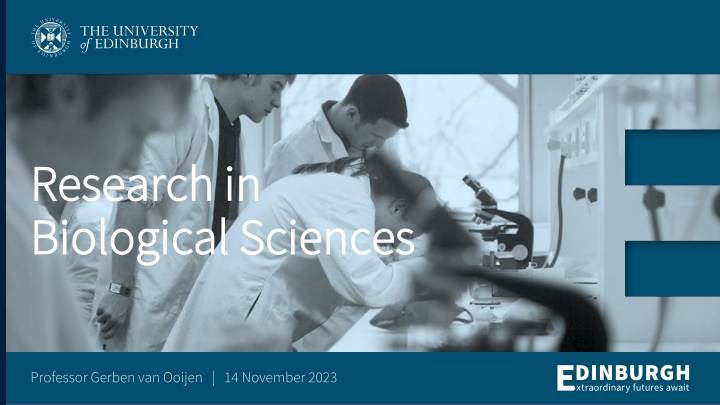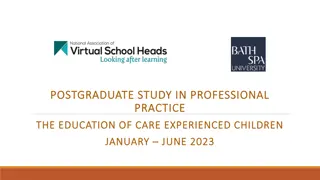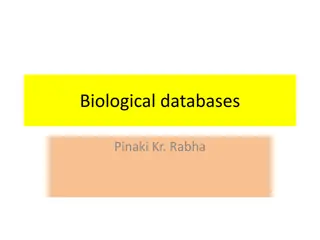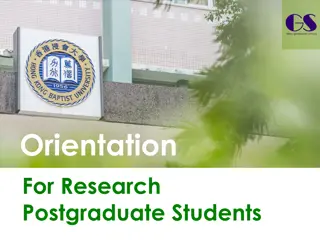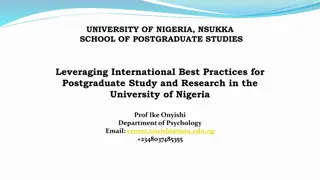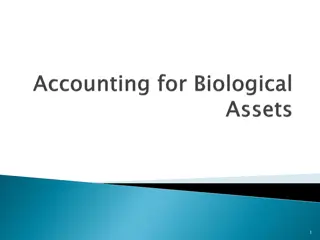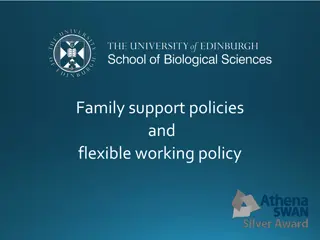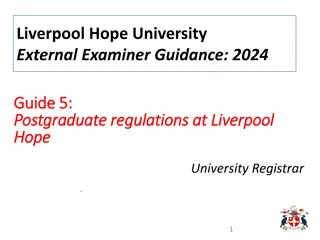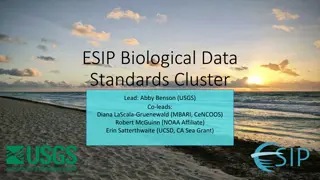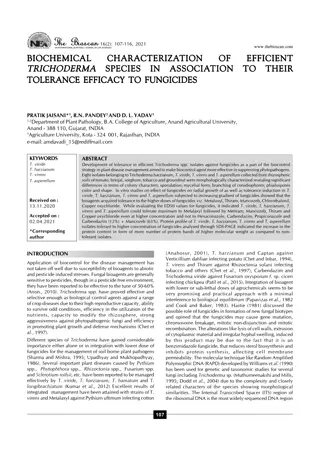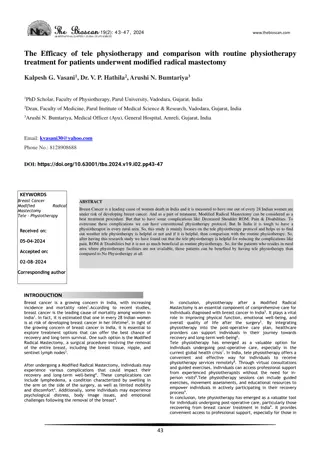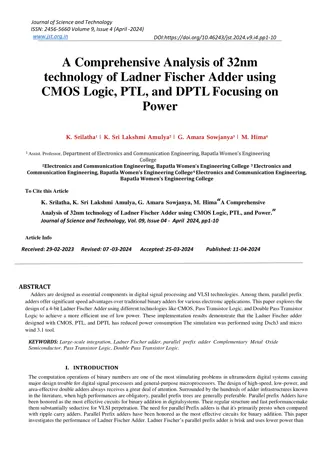Opportunities in Postgraduate Research in Biological Sciences
Explore the benefits of postgraduate research in Biological Sciences, such as advancing global challenges, acquiring critical thinking skills, building a professional network, and personal development in a supportive environment. Discover the international research excellence, quality of life, and key organizations supporting research in academia and industry.
Download Presentation

Please find below an Image/Link to download the presentation.
The content on the website is provided AS IS for your information and personal use only. It may not be sold, licensed, or shared on other websites without obtaining consent from the author.If you encounter any issues during the download, it is possible that the publisher has removed the file from their server.
You are allowed to download the files provided on this website for personal or commercial use, subject to the condition that they are used lawfully. All files are the property of their respective owners.
The content on the website is provided AS IS for your information and personal use only. It may not be sold, licensed, or shared on other websites without obtaining consent from the author.
E N D
Presentation Transcript
Research in Research in Biological Sciences Biological Sciences Professor Gerben van Ooijen | 14 November 2023
Why choose postgraduate research? To achieve something significant by advancing knowledge to address the world s grand challenges Gain training in critical thinking and research Gain a broad base in key skills (management, team work, communication, networking) Develop a professional network for future opportunities Personal development from working in a supportive, innovative, diverse environment on an international stage
International research excellence 5th 184M in the UK for Biological Sciences active research grants 135 Principal Investigators 393 Postgraduate Research students
Key organisation on our doorstep Research Institutes Charities and NGOs Industry
Key organisation on our doorstep Work in both academia & industry, e.g. Industrial Work in both academia & industry, e.g. Industrial CASE studentships ( CASE studentships (PIP placements) Communicate with policy makers, e.g. policy Communicate with policy makers, e.g. policy internships internships Communicate with our outreach programmes, e.g. Communicate with our outreach programmes, e.g. Edinburgh Science Festival (SBS Press Gang) Edinburgh Science Festival (SBS Press Gang)
A PhD equips you for a career in research and much more
Where you can base yourself: our institutes The Institute of Cell Biology - understanding the molecular mechanisms that underpin genomic and cellular structure and function. In particular, the stability, transmission and expression of genetic information in both prokaryotes and eukaryotes. The Institute of Ecology and Evolution - understanding the population genetics of wild populations and of complex traits. Understanding the evolutionary causes and consequences of ecological interactions and behaviour. The Institute of Immunology and Infection Research encompassing fundamental immunology, immune regulation of disease and host-pathogen biology. Cross-disciplinary approaches to address today s challenges in global health. The Institute of Molecular Plant Sciences research from molecular to whole-plant scales addressing the global challenges of food security, green technology and climate change. The Institute of Stem Cell Research scientists and clinicians study stem cells, disease and tissue repair to advance human health as part of the Centre for Regenerative Medicine. The Institute of Quantitative Biology, Biotechnology and Biochemistry using Systems and Synthetic Biology approaches as well as structural studies to address fundamental biology questions and practical biotech solutions.
Additional support: the Graduate School The Graduate School oversees the progression of all students registered to study for a PhD or MSc by research degrees in the School of Biological Sciences. Postgraduate students Institute Institute student reps postgraduate advisors SBS Graduate School
Recognised excellence in research training We host several Doctoral Training Programmes eg. EASTBIO, NERC E4, MRC Precision Medicine Wellcome Trust PhD in Hosts, Pathogens & Global Health Wellcome Trust PhD in Integrative Cell Mechanisms Wellcome Trust PhD in One Health Models of Disease Competitively won based on excellence in PhD training offered The Darwin Trust School of Biological Sciences Scholarships University Scholarships External organisation PhDs Individual supervisor projects Supported by
Where do I start? www.ed.ac.uk/biology/study-with-us/postgraduate-research/apply-for-a-phd
Where do I start? 1. Select your project from our online list of PhD Projects. 2. Click 'how to apply' on the advertised PhD project to complete our eligibility checklist - for each project if applying for more than one. 3. You will then apply through the University s online application system EUCLID. 4. 4. Applying for funding is a separate process Applying for funding is a separate process - a list of suggested funding schemes is provided during the eligibility checklist. You can also view the full list of funding schemes.
Where do I start? 1. Confirm our entry requirements: At least 2.1 Honours degree or its international equivalent 2. Contact supervisor(s): Browse available PhD projects & staff profiles contact staff who do what you re interested in Discuss potential projects / application with prospective supervisor(s) PhD & MScR 3. Apply online first closing date is 27 November 2023 27 November 2023: Specify supervisor & project Upload documents (proposal, transcripts, references, etc.) Funding information
What happens next? 1. Supervisors review applications and forward to Interview panel: All supervisors can propose one or two students, depending on funding body 2. Shortlisting for interview: Panel looks at academic record, experience, motivation 3. Attend interview: a chance to talk about your previous research and your ambitions 4. Offers made as early as possible but can take a little while Start of projects in our School is 1 October October 2024
What you can do now edin.ac/student-chat-pg virtualvisits.ed.ac.uk/pg
What you can do now Contact potential supervisors. Get in touch if you have questions on application process: Grad.Biol@ed.ac.uk www.ed.ac.uk/biology/prospective-students/postgraduate-research/apply-for- a-phd Welcome to Edinburgh Welcome to Edinburgh
Professor Gerben van Ooijen Grad.Biol@ed.ac.uk
